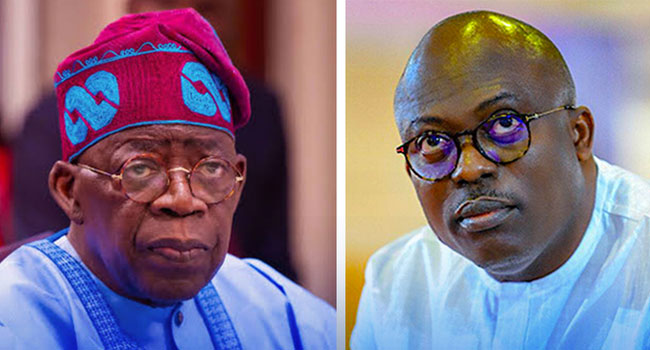Suspended Rivers Governor Fubara to Join APC After Deal with President Tinubu
Suspended Rivers State Governor Siminalayi Fubara is reportedly set to defect to the All Progressives Congress (APC) following a strategic agreement reached with President Bola Ahmed Tinubu. Multiple sources confirmed that the deal was struck after months of sustained political pressure, institutional targeting, and federal maneuvers aimed at pushing Fubara out of the opposition and into the ruling party.
The development is believed to be part of a broader plan by the Tinubu administration to weaken opposition influence nationwide ahead of the 2027 general elections. Fubara, entangled in a prolonged power tussle with his estranged godfather and current Minister of the FCT, Nyesom Wike, was said to have been politically cornered, leaving him with little choice but to realign.
Key federal institutions—including the courts, security forces, and the National Assembly—were allegedly mobilized to undermine Fubara’s authority. These efforts culminated in threats of impeachment, legal challenges, and his eventual suspension from office. In March 2025, citing escalating instability in Rivers State, President Tinubu declared a state of emergency, suspended Governor Fubara, his deputy Ngozi Odu, and other top officials, and installed retired Vice Admiral Ibok-Ete Ekwe Ibas as sole administrator.
Sources revealed that the turning point came during a discreet meeting in London between Tinubu and Fubara in April. While the Presidency has not officially acknowledged the meeting, diplomatic insiders confirmed it. Fubara reportedly agreed to switch allegiance to the APC in return for reinstatement and political safeguards—albeit under conditions that limit his independence.
Meanwhile, Nyesom Wike has softened his tone. In a recent interview with BBC Pidgin, he downplayed tensions, referring to Fubara as “my son” and insisting his interventions were to protect political stability. “I told him, you have the yam and the knife. If you want genuine peace, take it,” Wike said.
The anticipated defection has sparked backlash from civil society groups and political analysts, who warn it exemplifies the growing use of federal power to coerce political defections. “This wasn’t a negotiation; it was a siege,” said a source familiar with the developments. “Fubara has been politically subdued. Rivers State is now a case study in federal overreach.”
Critics say the situation poses a serious threat to Nigeria’s democracy, pointing to the dangerous precedent of using emergency powers and state institutions to neutralize opposition. As the political fallout unfolds, attention now shifts to how other opposition leaders might react to what many see as a cautionary tale ahead of the 2027 elections.

